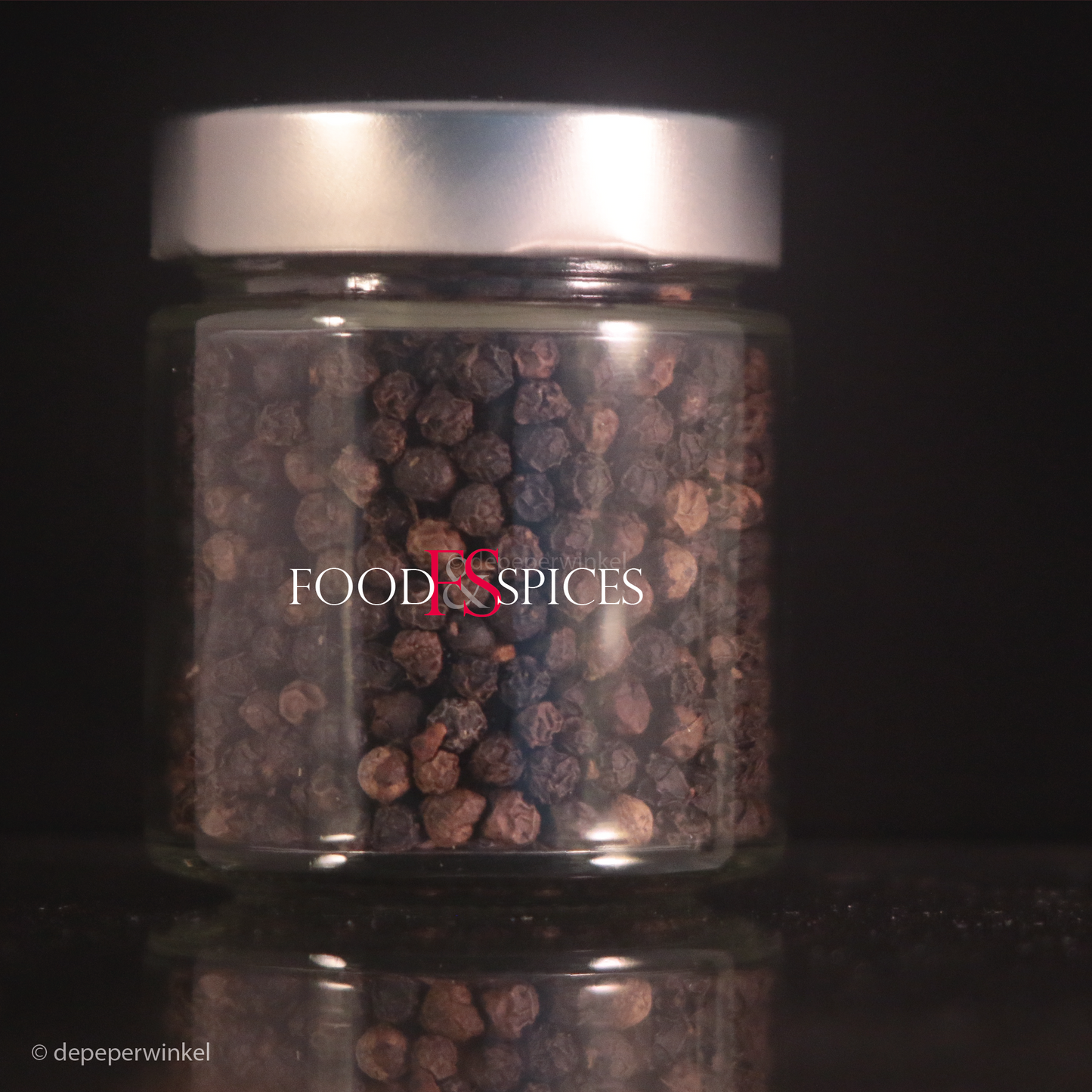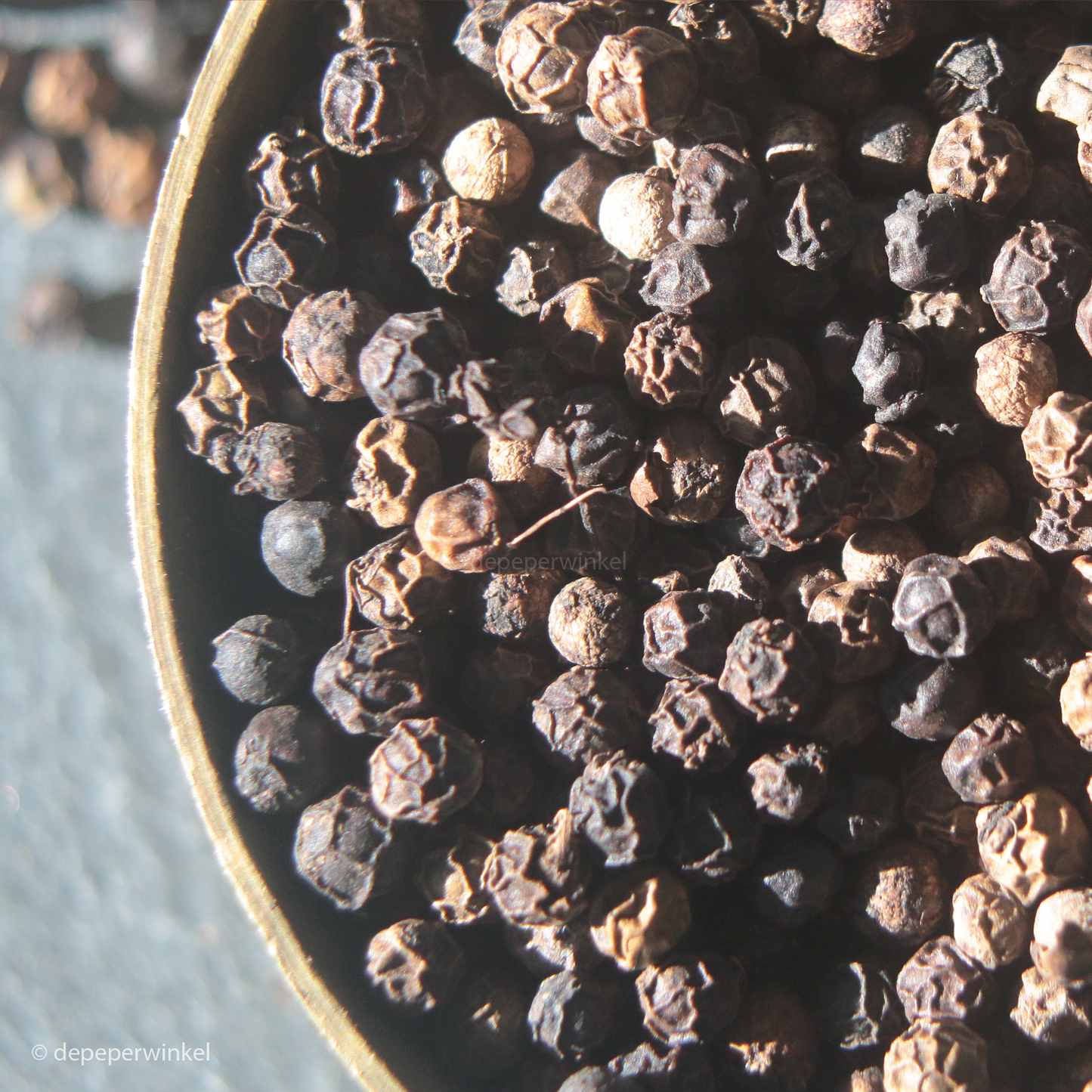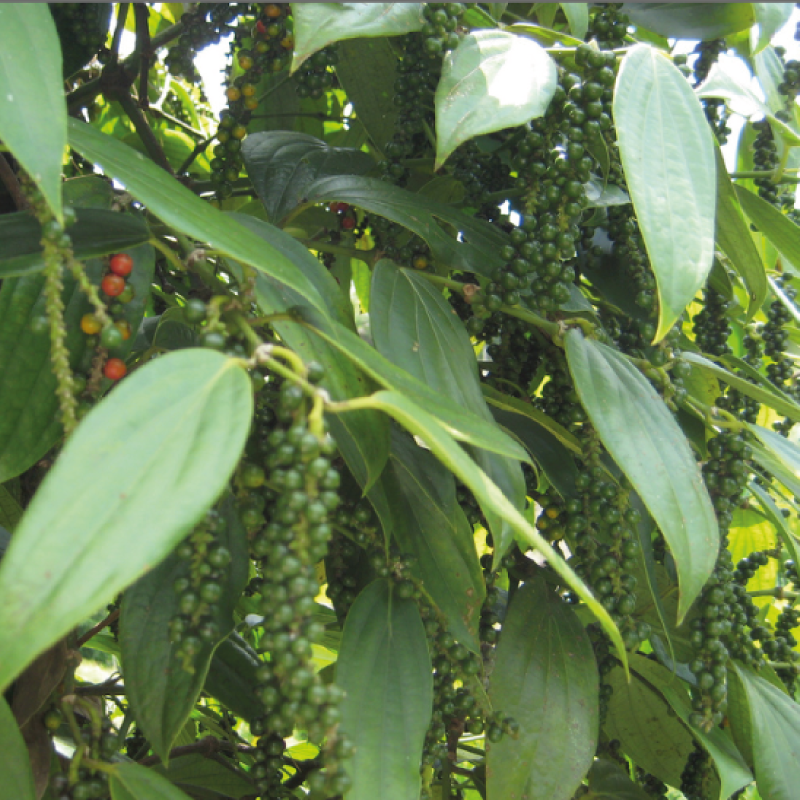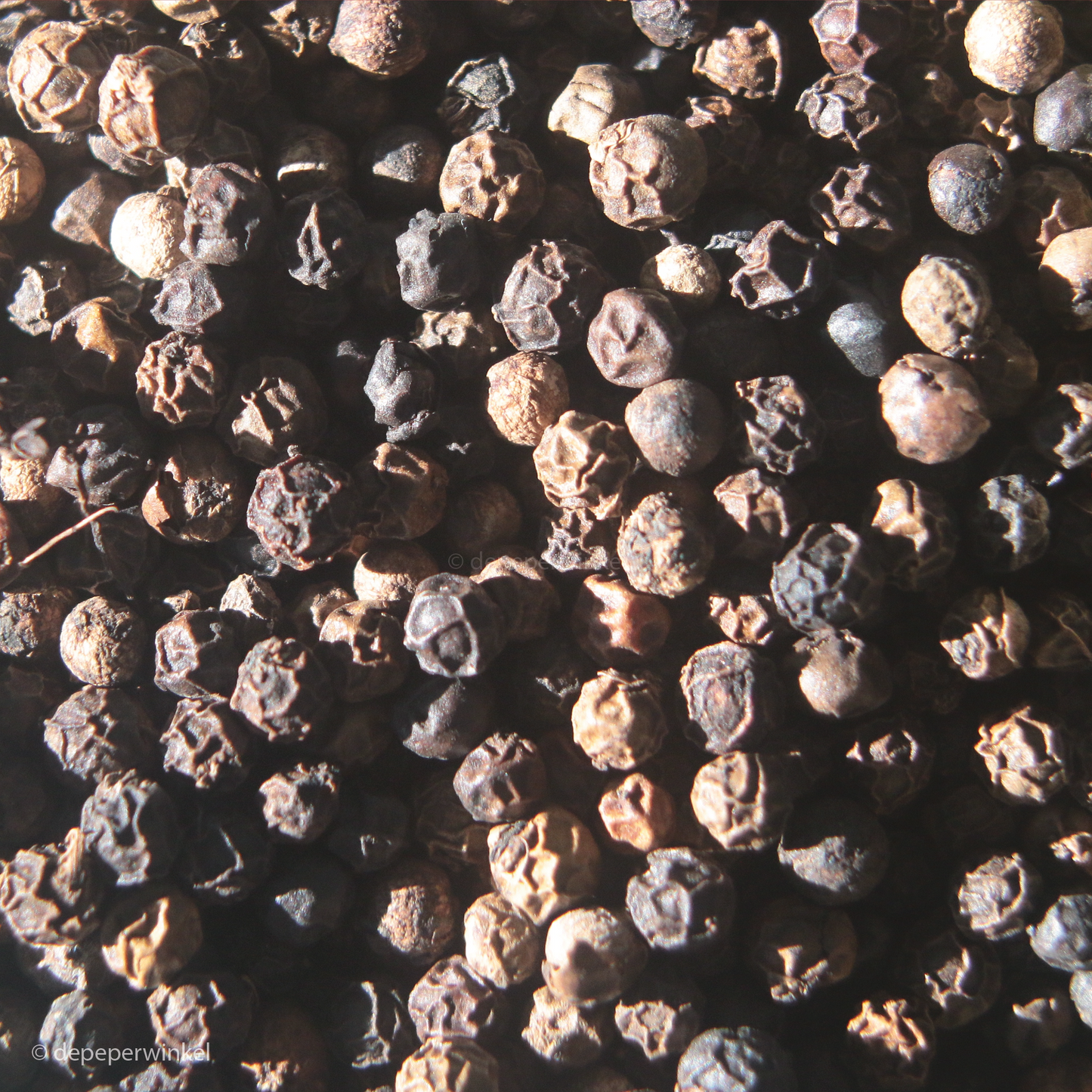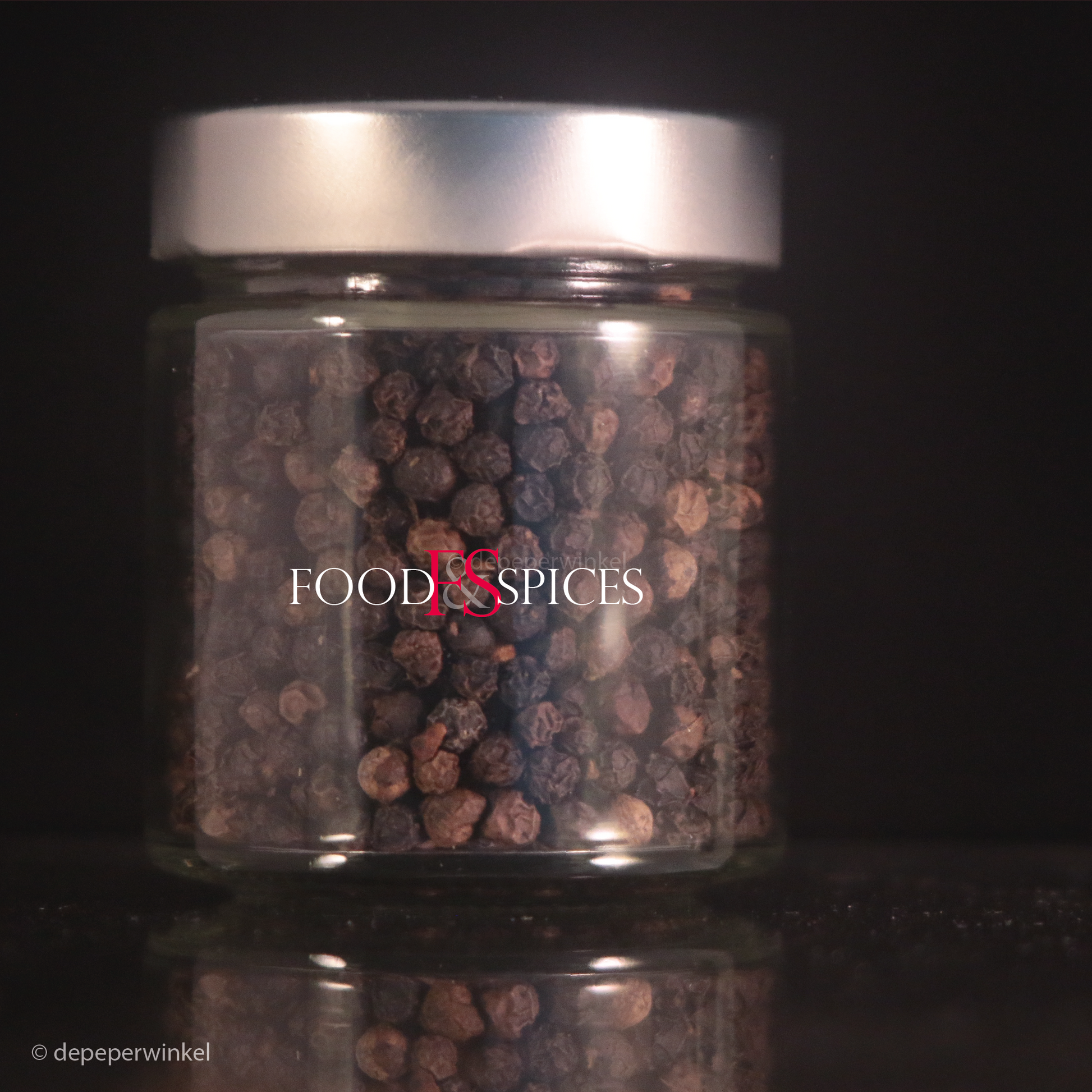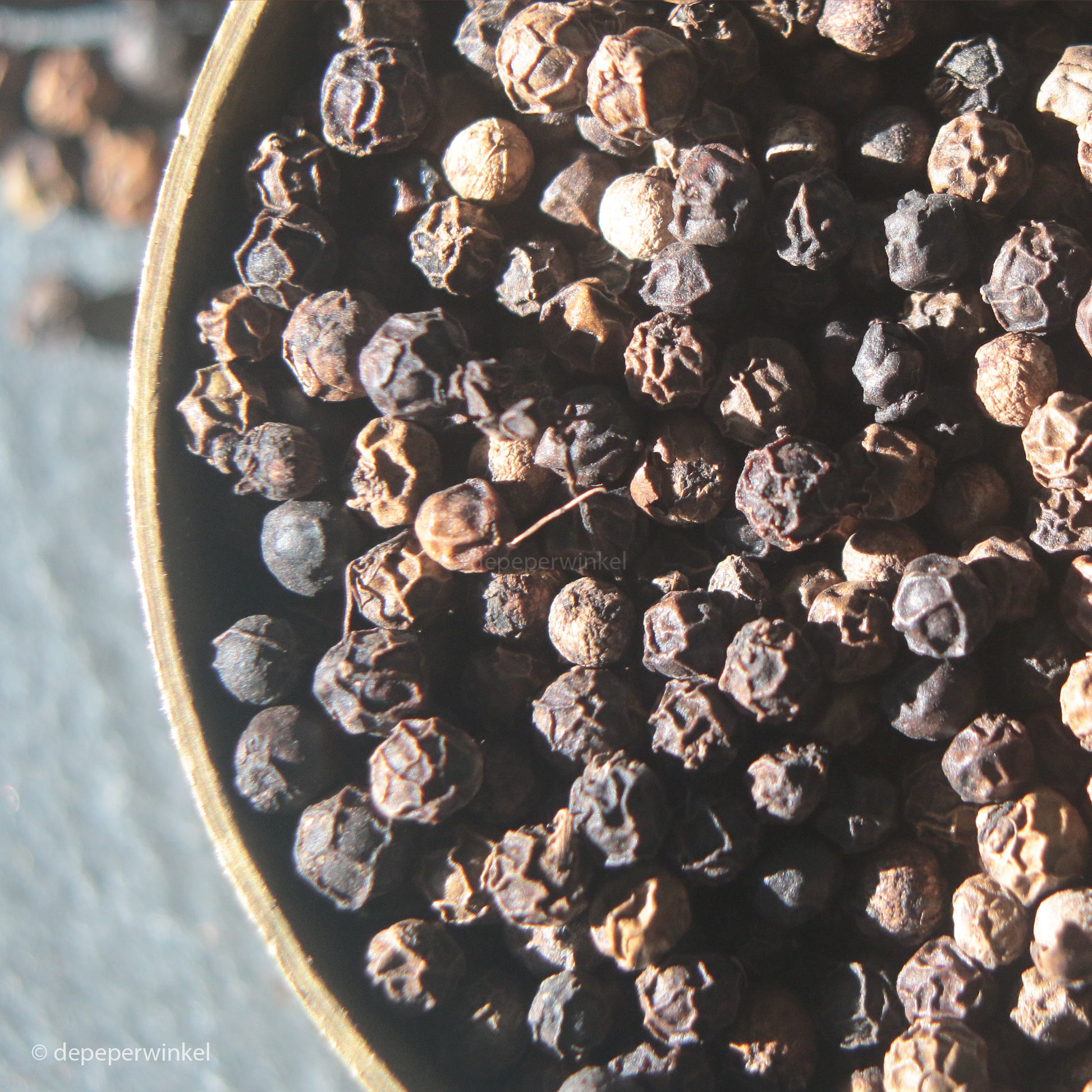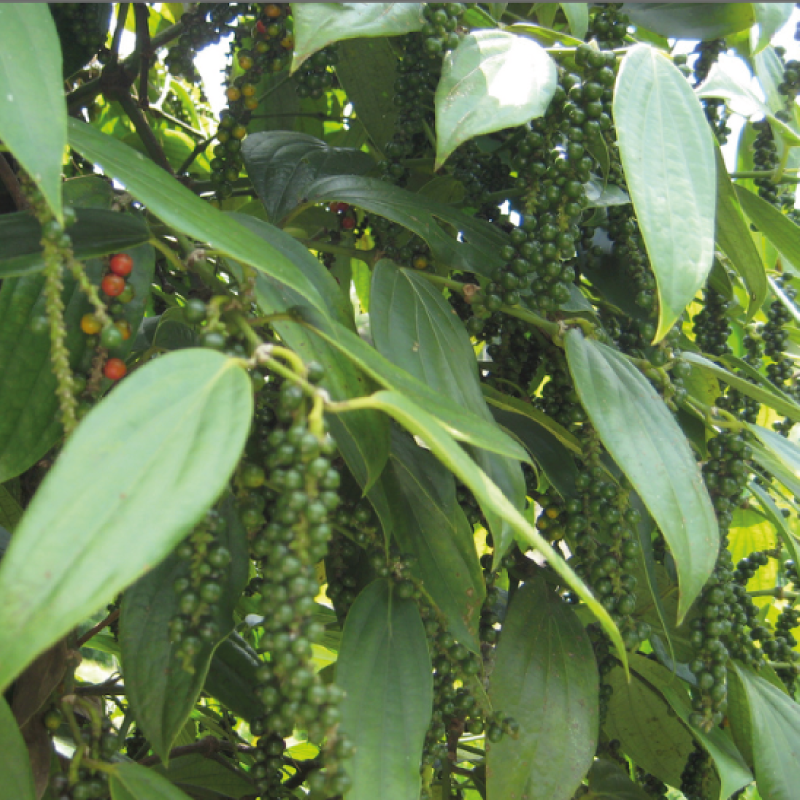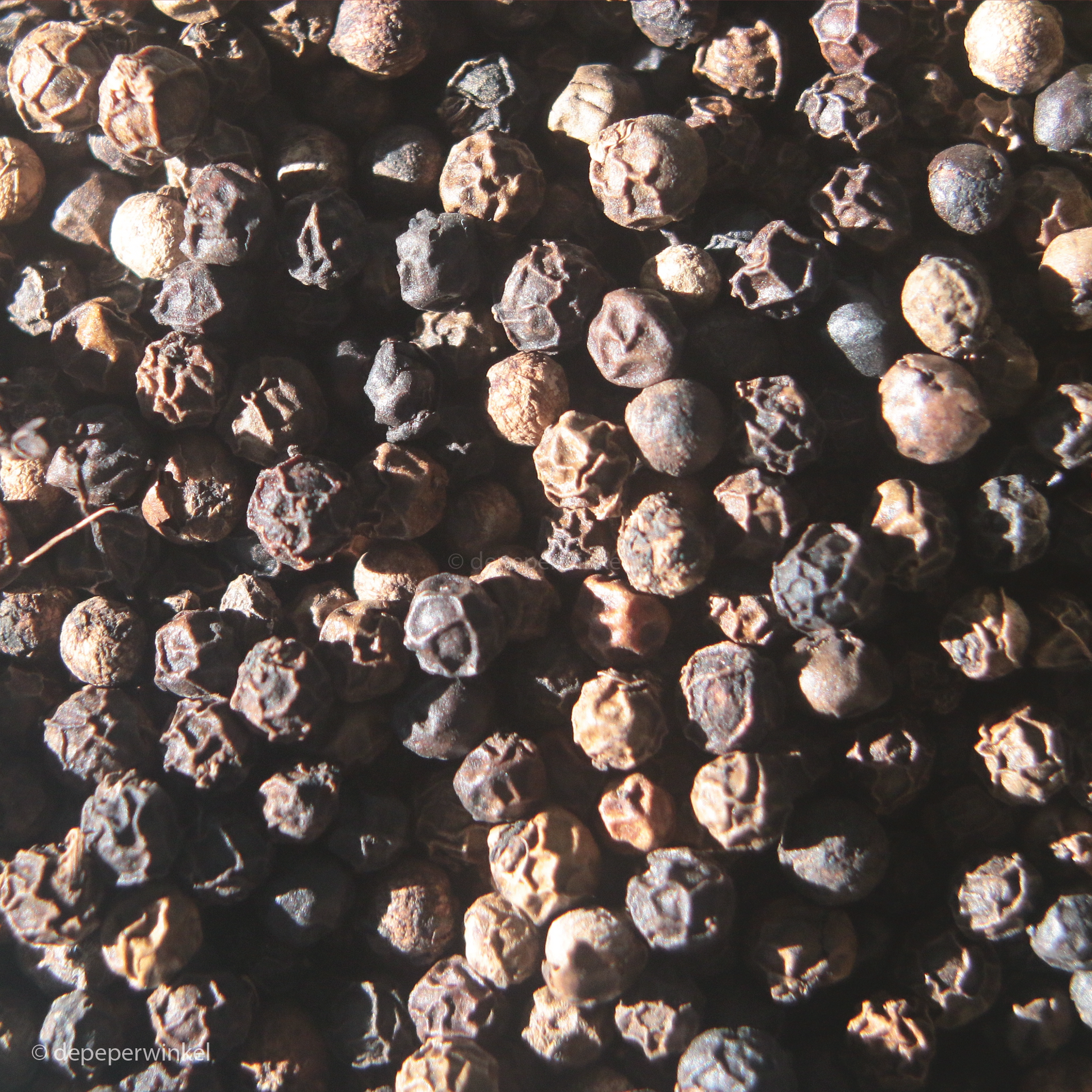depeperwinkel
Black Sarawak <tc>pepper</tc> GI
Black Sarawak <tc>pepper</tc> GI
In stock
Unable to load availability for pickup
Sarawak
It may sound critical, the Sarawak
The
When black
About 85% of the 67,000 households that earn their living from Sarawak
Sarawak
The Sarawak vines are strung together in open fields, often without shade, and are pruned several times a year to maximize yield. There's no greater contrast imaginable than with the cultivation of the premium
The Sarawak
Why not organic?
The reason for this is quite simple. To meet the strict international standards, small family businesses must make prohibitively large investments. Even though microcredit is available, it hasn't proven feasible for most family businesses. About ten years ago, the Board began promoting organic farming, but for the reasons mentioned above, it has still not gained much traction.
Developments
The government-stimulated increase in scale poses a serious threat to the survival of small-scale farming
Smell and taste
Black Sarawak smells spicier than it tastes. Besides the aroma of wet wood, you'll detect notes of fruit (citrus) and cocoa.
Usage
Sarawak is used in Malaysian dishes like Sarawak laksa—the Chinese influence—and curries, and coarsely ground over your grilled steak. It's also used in stir-fries with light spring vegetables and in desserts with soft red fruit.
Features:
- 100%
pepper berries of the Piper nigrum var kuching - protected by the Malaysian BGA label (international: PGI)
- origin: Kuching region, Sarawak (Malaysia)
Assortment
- available in glass (60 grams), stand-up pouch and test tube (10 ml)
- larger quantities on request
Gift wrapping
- The jar is available in a tasteful gift packaging, consisting of a cube box filled with black tissue paper.
- For an overview of our gift packaging, please refer to the gift packaging section.
General advice
- grind your
pepper shortly before use
- add the ground
pepper at the very last moment to your preparation
Save:
- save your sarawak
pepper in closed packaging - preferably store in a dark, dry and cool place
- best before September 2028 (09-2028)
- This expiration date is an indication
Try?
Want to know what Sarawak tastes like? You can also try a test tube with enough
Batch number
The batch number helps us track which batch an item originates from. It's listed on the packing slip and invoice.
Share
